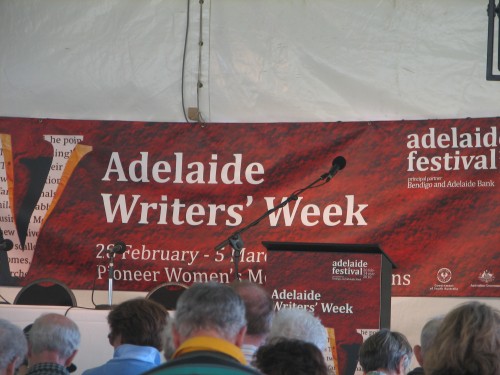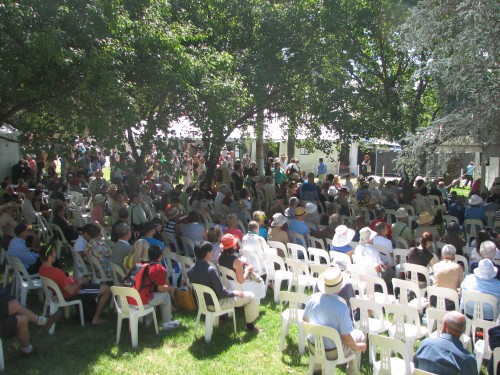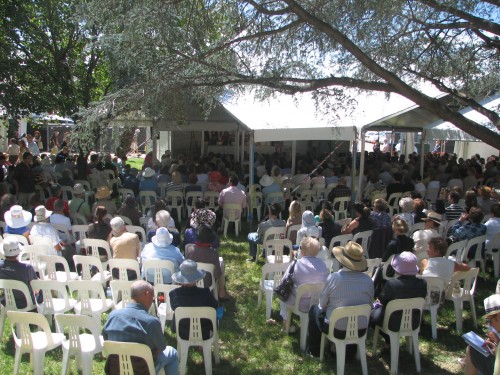Critics of Australian Poetry
I must confess that I read quite a few poems in the passage of each year. I subscribe to and read a number of literary journals and occasionally buy volumes of poetry, especially new releases from poets I respect or have grown to love; for example, I ordered a new volume of Valerie Volk’s poems yesterday. I also borrow books of poetry from my local library from time to time, usually as the mood moves me.
I also write a moderate amount of poetry in the course of a year. I have never counted the poems I have written but a list must run to many hundreds, maybe 500 – 600 or so over the last 50+ years. I started writing poetry at high school. During that time I have also had many dozens of poems published in a wide variety of journals, magazines other places. As well I have on occasion been asked to perform my poems in public. I have self-published nearly a hundred of my haiku and poems on this site here. Several of my poems have won awards too.
Over the years I have written some reviews of books I have read, but rarely have I reviewed poems or books of poetry. This morning I was alerted to a major critique of the state of reviewing and critiquing poetry at present in the Australian scene. In his article “The Poet Tasters” Ben Etherington reviews the state of literary criticism of the current and recent crop of books of poetry, and finds them sadly deficient. He compares them to the lofty heights of general literary criticism – mainly novels.
The poetry critic is a different creature, evolved within a different ecosystem, whose resemblance to most critics of fiction is not much closer than honeyeaters to chickens.
The problem, as I see it, and as Etherington points out, is the result of economics. It is well known that a handful of novelists in Australia can make a modest living from their craft, but poets generally are their poorer cousins – much, much poorer.
The art form subsists in an economy of university posts, writing courses, postgraduate scholarships, literary prizes, government grants, fellowships, philanthropy and, above all, self-funding.
In the article he goes on the critique the critics, quoting extensively from a representative sample of them and concludes that the critics are far too effusive in their praise, and far too lacking in deep, incisive criticism. I confess that I too usually fall into this trap when reviewing, preferring to err on the side of praise than appear to be too harsh. I can think of only one exception where I was quite blunt and in direct opposition to the vast chorus of praises heaped upon the novel The Slap which I found written in a lazy and offensive manner.
Over coming months I do intend reviewing – and even critiquing – a number of volumes of poetry I have read in recent times. I must remember to not just end up praising the works but also digging a little deeper.
Further reading:
- Valerie Volk’s poetry books
- Some samples of my poetry
- Archive of my reviews
- The poet tasters by Ben Etherington in the Sydney Review of Books
A special birthday present
It was my birthday two weeks ago.
At the time I treated myself to two new books to read when I go on a beach holiday in a few weeks’ time. I also received a book voucher from my book loving daughter. I managed to use the voucher last week. I bought myself a copy of the recently published Macquarie PEN Anthology of Australian Literature. Its launch was covered in controversy, not so much for what or who was left out but rather what was included. It generated quite a deal of debate about the whole concept of what can and cannot be classed as literature.
Forget the debate. I’m looking forward to dipping into this mighty tome over the next few years, revisiting some old favourites and hopefully discovering some new works or authors to dig deeper into. At over 1400 pages of smallish print it is not light bed-time reading.
Reference:
Jose, N, 2009, Macquarie PEN Anthology of Australian Literature, Allen and Unwin, Crows Nest.
Great Works of Literature on Twitter
I’ve recently joined the ranks of those who Twitter. (Okay – you can stop laughing/ crying/ booing etc.
I find it fascinating for keeping up with family and friends (yes – I do have a few).
Earlier today I came across a link to someone who had started Tweeting the Great Works of Literature. Now, with only 140 characters to play with, there is a challenge.
Here are some I particularly like:
Samuel Beckett’s bleak play Waiting for Godot is reduced to: “Vladimir and Estragon stand next to tree and wait for Godot. Their status is not updated.”
Pride and Prejudicejaneaustin: Woman meets man called Darcy who seems horrible. He turns out to be nice really. They get together.
Bridget Jones’s Diary
helenfielding: RT @janeaustin Woman meets man called Darcy who seems horrible. He turns out to be nice really. They get together.
To read the original article, click here.


